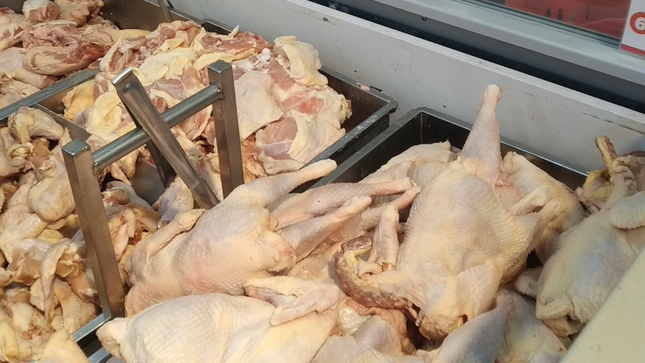The Chairman of the Vietnam Livestock Association, Vietnam Animal Feed Association, Vietnam Poultry Association, and Vietnam Livestock Association recently sent a letter to the Prime Minister and the Chairman of the National Assembly, proposing solutions to tightly control the import of animal husbandry products.
According to the four large associations, the current regulations on the import of animal husbandry products in Vietnam still have many loopholes, providing favorable conditions for low-quality animal products to flood the market. Meanwhile, in order to export meat and poultry eggs, Vietnam faces many strict technical barriers in importing countries, causing disadvantageous situations for domestic animal husbandry products.
In 2023 alone, Vietnam spent up to $3.53 billion on importing animal husbandry products, but the export revenue was only $515,000. Not to mention, a large quantity of livestock and small-scale imported animal husbandry products, such as discarded cows, buffalos, low-quality chickens, and breeding chickens.
The associations believe that the massive import of animal husbandry products into Vietnam is causing many risks and consequences, spreading diseases, especially dangerous diseases such as African swine fever, avian influenza, and skin ulcers in cattle…

Imported products are creating unfair competition pressure for domestic animal husbandry products.
“Imported products create unfair competition pressure for domestic animal husbandry products. Most of these products are near-expiry food, so they have very low prices, only 50% of the domestic product prices. With the current import speed, in just 3-5 years, Vietnam will become a super-importer of animal husbandry products,” said the representatives of the associations, suggesting that the government should have policies and time for domestic farmers and businesses to adapt.
The leaders of the associations also recommend that the Prime Minister direct the National Steering Committee on Smuggling, Trade Fraud, and Counterfeit Goods, as well as relevant ministries and sectors, to strengthen inspections and strict control of the import of animal husbandry products.
For legitimate imports, the four associations urgently recommend the establishment of technical barriers and trade policies to minimize the import of legitimate animal husbandry products.
In particular, the functional agencies need to strengthen inspection measures, quality checks, and restrict the number of live livestock import gateways into Vietnam, following the experiences of countries such as the United States, China, Thailand, Japan, and South Korea.
“These countries currently have requirements for cold processing with complex and expensive technologies, and on average, they only allow 3-5 road, sea, and air gateways to import live animals. Meanwhile, Vietnam has over 30 import gateways for live livestock,” shared the representatives of the four associations.
The leaders of the aforementioned units also recommend a prohibition on all forms of small-scale imports and the use of imported animals and animal husbandry products.












